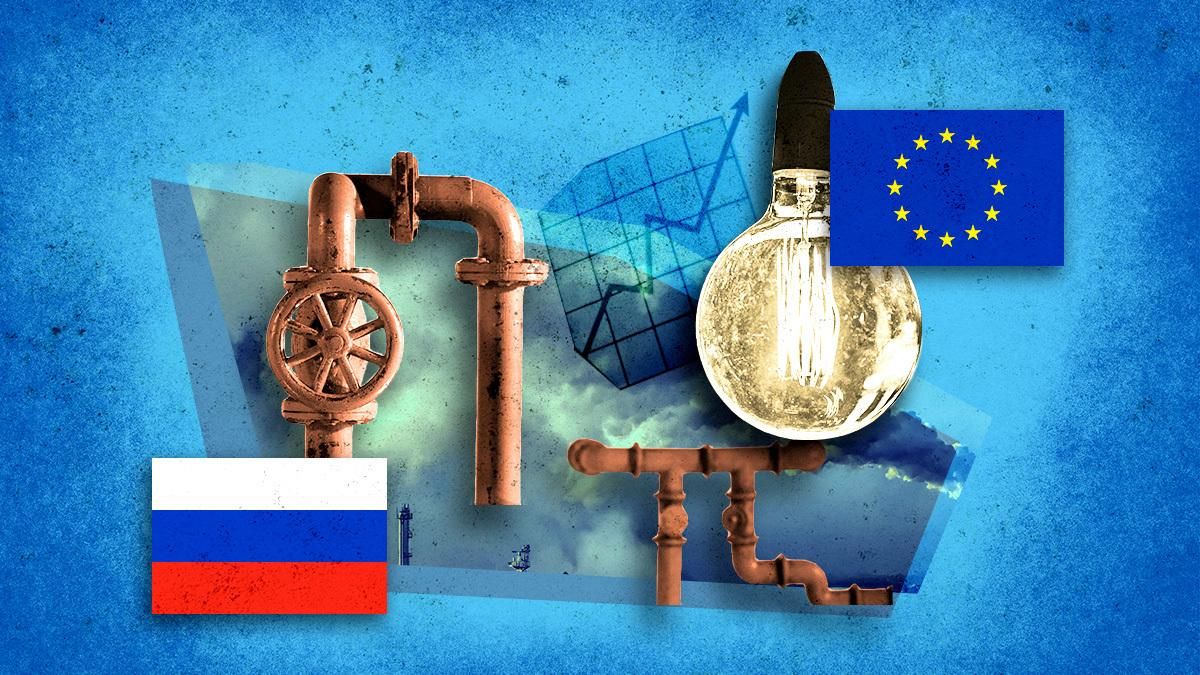Energy prices in the EU have skyrocketed since Russia invaded Ukraine. This week, the cost of electricity across the bloc reached 10 times the decade-long average — mainly due to surging gas prices as a result of Moscow cutting natural gas supplies as payback for sanctions.
As consumers feel the pinch, EU leaders are now under intense pressure to do something to tame runaway energy costs. One way is putting a cap on gas prices for electricity.
How would that work? One proposal, floated by Italian PM Mario Draghi, is a bloc-wide ceiling on the price of Russian gas bought by EU energy companies.
That would wipe out Vladimir Putin's main leverage over Europe in one fell swoop, but also risks the Kremlin turning off the tap completely. (Russian energy giant Gazprom shut down Wednesday the Nord Stream 1 pipeline serving Germany for three days, citing highly suspicious maintenance work.)
The more popular — and populist — option is capping the price of gas from any country used to generate electricity, which is getting a lot of buzz in Brussels these days. EU governments would pay energy firms the difference between that cieling and the higher market price of gas, so companies don't have to pass on the cost to consumers.
Whatever Putin does, price-capping fans argue, come winter ordinary Europeans would be able to keep the lights on and their homes warm.
The price cap is a short-term political gambit that gives EU leaders some breathing room to diversify away from Russian gas without the political backlash from Europeans struggling to pay their electric bills, says Raad Alkadiri, managing director for energy at Eurasia Group.
Brussels, he adds, is desperate to kick its Russian gas habit, but EU member states need more time to import and store enough LNG from alternative sources like Algeria or Qatar. And in the future, the bloc hopes that more renewables in the energy mix should reduce the EU's overall reliance on gas for electricity.
A gas price cap targeting consumers is already in place since June in Spain and Portugal, which got the green light from Brussels to pilot the system. So far so good, but the Iberian Peninsula doesn't buy much Russian gas and is somewhat disconnected from the broader EU wholesale market (although this would change if France agrees to build a pipeline to Germany under the Pyrenees).
Still, it's unclear if an EU-wide cap would need sign-off from all member states, and in any case, extending the Iberian scheme to the entire bloc might have some unintended consequences.
For one thing, artificially “cheap” gas could actually encourage Europeans to consume more gas barely a month after EU member states painstakingly agreed to “voluntarily” cut gas consumption by 15% until April 2023 to avoid winter rationing. More demand will push prices up, and over time make the subsidy unsustainable for cash-strapped governments.
What's more, two of the governments pushing the hardest for an EU-wide cap — Italy and Spain — are already highly indebted, and would get even deeper into the red if they borrow more money to shield their citizens from sky-high electric bills if the war drags on.
For another, this could all throw a wrench into EU plans to achieve net zero carbon emissions by 2050. For those against the price cap, it’s as much a subsidy for consumers as it is for fossil fuels, and public funds would be better spent on accelerating the renewables transition.
"The cost of diversifying away from Russian gas is really expensive," Alkadiri says. But if you're an EU government, he adds, you must choose between making consumers pay or picking up the tab yourself. And while you might style yourself as fiscally responsible, the last thing you want is to face angry voters who feel they’ve become poorer — and might force you to let Putin get away with murder in Ukraine.
"Russia is sitting there, saying: you want cheap gas? We have it in droves. And you have all the infrastructure you need to get it. Europe is saying: yes, but that gives you political power over us. So we don't want your gas. We don't want to be dependent on you.”
- How new UK PM Liz Truss will impact UK/EU relations - GZERO Media ›
- Solving Europe's energy crisis with Norway's power - GZERO Media ›
- Europe's energy future: Perspective from Norway's PM Jonas Støre - GZERO Media ›
- Who blew up the Nord Stream pipelines? - GZERO Media ›
- World Bank announces plan to bring power to 300 million in Africa - GZERO Media ›
- How to tackle global challenges: The IMF & World Bank blueprint - GZERO Media ›
